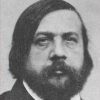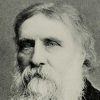The trouble with me, he thought unhappily, is that I have been about the world long enough to know that God’s plans for us, however infallibly good, may not take the form that we expect and demand.
Ellis Peters (1913-1995) English writer, translator [pseud. of Edith Mary Pargeter, who also wrote under the names John Redfern, Jolyon Carr, Peter Benedict]
One Corpse Too Many, ch. 12 (1979)
(Source)
Quotations about:
divine plan
Note not all quotations have been tagged, so Search may find additional quotes on this topic.
CYCLOPS: Are you the ones who went to punish Ilium on the Scamander for the theft of the worthless Helen?
ODYSSEUS: Yes, we are the ones who endured that terrible toil.
CYCLOPS: Disgraceful expedition, to sail for the sake of one woman to the land of the Phrygians!
ODYSSEUS: It was the doing of a god: blame no mortal for it.
[ΚΥΚΛΩΨ: ἦ τῆς κακίστης οἳ μετήλθεθ᾽ ἁρπαγὰς
Ἑλένης Σκαμάνδρου γείτον᾽ Ἰλίου πόλιν.ΟΔΥΣΣΕΥΣ: οὗτοι, πόνον τὸν δεινὸν ἐξηντληκότες.
ΚΥΚΛΩΨ: αἰσχρὸν στράτευμά γ᾽, οἵτινες μιᾶς χάριν
γυναικὸς ἐξεπλεύσατ᾽ ἐς γαῖαν Φρυγῶν.ΟΔΥΣΣΕΥΣ: θεοῦ τὸ πρᾶγμα: μηδέν᾽ αἰτιῶ βροτῶν.]
Euripides (485?-406? BC) Greek tragic dramatist
Cyclops [Κύκλωψ], l. 280ff (c. 424-23 BC) [tr. Kovacs (1994)]
(Source)
Regarding the Trojan War, as told in Homer's Illiad.
(Source (Greek)). Alternate translations:POLYPHEME:Are ye the men
Who worthless Helen's ravisher pursued
To Ilion's turrets on Scamander's bank?
ULYSSES: The same: most dreadful toils have we endured.
POLYPHEME: Dishonourable warfare; in the cause
Of one vile woman, ye to Phrygia sail'd.
ULYSSES: Such was the will of Jove; on no man charge
The fault.
[tr. Wodhull (1809)]CYCLOPS: What, have ye shared in the unenvied spoil
Of the false Helen, near Scamander's stream?
ULYSSES: The same, having endured a woeful toil.
CYCLOPS: Oh, basest expedition! sailed ye not
From Greece to Phrygia for one woman's sake?
ULYSSES: 'Twas the Gods' work -- no mortal was in fault.
[tr. Shelley (1824)]CYCLOPS: Are ye the men who visited on Ilium, that bordereth on Scamander's wave, the rape of Helen, worst of women?
ODYSSEUS: We are; that was the fearful labour we endured.
CYCLOPS: A sorry expedition yours, to have sailed to the land of Phrygia for the sake of one woman.
ODYSSEUS: It was a god's doing; blame not any son of man.
[tr. Coleridge (1913)]CYCLOPS: Oho ! then you’re the men who went in search
Of Helen, who left her husband in the lurch,
And ran away to Ilium by Scamander?
ODYSSEUS: Yes: slippery fish -- hard work to hook and land her.
CYCLOPS: Yes -- and a most disgraceful exhibition
You made of your own selves! -- an expedition
To Phrygia, for one petticoat! -- disgusting!
ODYSSEUS: Don’t blame us men: it was the Gods’ on-thrusting.
[tr. Way (1916)]
Let Tom and Jane not think, because they see
one man is picking pockets and another
is offering all his goods to charity,
that they can judge their neighbors with God’s eyes:
for the pious man may fall, and the thief may rise.[Non creda donna Berta e ser Martino,
per vedere un furare, altro offerere,
vederli dentro al consiglio divino;
ché quel può surgere, e quel può cadere.]Dante Alighieri (1265-1321) Italian poet
The Divine Comedy [Divina Commedia], Book 3 “Paradiso,” Canto 13, l. 139ff (13.139-142) [Thomas Aquinas] (1320) [tr. Ciardi (1970)]
(Source)
Berta and Martino were common names in Dante's era, and stand in for "ordinary people" (with a sarcastic hint of pretension by giving them minor titles). Most translators use a straight translation of the names to Bertha and Martin; others change them to something more modern to reflect their everyman status.
(Source (Italian)). Alternate translations:The pious man
May fail ; the Penitent, altho' by spoil
He liv'd, may purchase Heav'n by arduous toil
Ere death: it is not our's their fate to scan.
[tr. Boyd (1802), st. 24]Seeing one steal,
Another bring, his offering to the priest,
Let not Dame Bertha and Sir Martin thence
Into heav’n’s counsels deem that they can pry:
For one of these may rise, the other fall.
[tr. Cary (1814)]Let not Nun Bertha and Saint Martin try,
Seeing one offer, and another steal,
The counsel of the heaven from that to tell:
For this may rise again, and that may fall.
[tr. Bannerman (1850)]Let not Dame Bertha nor Ser Martin think,
Seeing one steal, another offering make,
To see them in the arbitrament divine;
For one may rise, and fall the other may.
[tr. Longfellow (1867)]Let not Dame Bertha and Master Martin deem, for seeing one steal, another make offerings, that they are seeing them within the Divine counsel; for that one may be exalted and this may fall.
[tr. Butler (1885)]Let not Dame Bertha nor Sir Martin deem,
Because they see one rob, another pray,
That they can pry within the will supreme;
For one can rise, and one can fall away.
[tr. Minchin (1885)]Let not dame Bertha and master Martin, seeing one rob, and another make offering, believe to see them within the Divine counsel: for the one may rise and the other may fall.
[tr. Norton (1892)]Let not Dame Bertha or Squire Martin think, if they perceive one steal and one make offering, they therefore see them as in the divine counsel; for the one yet may rise and the other fall.
[tr. Wicksteed (1899)]Let not Dame Bertha and Master Martin, when they see one rob and another make an offering, think they see them within the divine counsel; for the one may rise and the other fall.
[tr. Sinclair (1939)]Let no Dame Bertha or Sir Martin deem,
Because they see one steal and one give all,
They see as divine forethought seéth them;
For the one yet may rise and the other fall.
[tr. Binyon (1943)]Let Jack and Jill not think they see so far
That, seeing this man pious, that a thief,
They see them such as in God's sight they are,
For one may rise, the other come to grief.
[tr. Sayers/Reynolds (1962)]Let not dame Bertha and squire Martin, if they see one steal and one make offering, believe to see them within the Divine Counsel: for the one may rise and the other may fall.
[tr. Singleton (1975)]Let not every Bertha and Martin think
Because they see one a thief, another respectable,
That they see how they are in the eyes of God;
For one may rise, and the other one may fall.
[tr. Sisson (1981)]Let not Dame Bertha or Master Martin think
that they have shared God’s Counsel when they see
one rob and see another who donates:
the last may fall, the other may be saved.
[tr. Mandelbaum (1984)]No Mr. or Miss Know-It-All should think,
when they see one man steal and one give alms
that they are seeing them through God's own eyes,
for one may yet rise up, the other fall.
[tr. Musa (1984)]Let not dame Bertha and messer Martin believe, because they see one stealing, another offering, that they see them within God’s counsel,
for that one can rise up, and this one can fall.
[tr. Durling (2011)]Do not let Jack and Jill think, that if they see someone steal or another make offering they therefore see them as Divine Wisdom does, since the one may still rise, and the other fall.
[tr. Kline (2002)]And so when Mrs Smith and Mr Jones
see one man steal, another offer alms,
don’t let them think they see this in God’s plan.
The thief may rise, the other take a fall.
[tr. Kirkpatrick (2007)]Let not Dame Bertha and Master Martin,
when they see one steal and another offer alms,
think that they behold them with God's wisdom,
for the first may still rise up, the other fall.
[tr. Hollander/Hollander (2007)]Let not Mrs. Judy and Mister John,
Seeing one man steal but another before
The altar with offerings, think one is sinful,
The other's in Heaven -- for people rise and fall.
[tr. Raffel (2010)]
Civilization is a concerted effort to remedy the blunders and check the practical joking of the Creator.
H. L. Mencken (1880-1956) American writer and journalist [Henry Lewis Mencken]
A Little Book in C Major, ch. 2, § 2 (1916)
(Source)
Variant:CIVILIZATION. A concerted effort to remedy the blunders and check the practical joking of God.
[A Book of Burlesques, "The Jazz Webster" (1924)]
As for understanding the ways of Providence, I gave up trying, long ago. I see no way of solving the mysteries of this strange existence, except by regarding it as preparatory to another; and even with that explanation, the fate of some individuals remains an inexplicable riddle.
Lydia Maria Child (1802-1880) American abolitionist, activist, journalist, suffragist
Letter to Harriet Seward (1869)
(Source)
Vesuvius, once latticed with vine shade,
With grapes from which the richest wine was made —
This is where Bacchus had his favorite haunt
And Satyrs could their wildest dances vaunt.
Here Venus more than Sparta made her place.
Here Hercules brought blessings for the race.
What once in beauty and renown was cherished
In fire and ashes has with horror perished.
Were it allowed immortal gods to rue it,
They would have wished they were not doomed to do it.[Hic est pampineis viridis modo Vesbius umbris,
Presserat hic madidos nobilis uva lacus:
Haec iuga, quam Nysae colles, plus Bacchus amavit,
Hoc nuper Satyri monte dedere choros.
Haec Veneris sedes, Lacedaemone gratior illi,
Hic locus Herculeo numine clarus erat.
Cuncta iacent flammis et tristi mersa favilla:
Nec superi vellent hoc licuisse sibi.]Martial (AD c.39-c.103) Spanish Roman poet, satirist, epigrammatist [Marcus Valerius Martialis]
Epigrams [Epigrammata], Book 4, epigram 44 (4.44) (AD 89) [tr. Wills (2007)]
(Source)
On the eruption of Mt. Vesuvius in AD 79, which destroyed the towns of Pompeii (whose patron was Venus) and Herculaneum (supposedly founded by Hercules), as well as much of the surrounding countryside.
(Source (Latin)). Alternate translations:Vesuvius shaded once with greenest vines,
Where pressed grapes did yield the noblest wines.
Which hills far more they say Bacchus lov'd,
Where Satyrs once in mirthfull dances mov'd,
Where Venus dwelt, and better lov'd the place
Than Sparta; where Alcides Temple was,
Is now burnt downe, rak'd up in ashes sad.
The gods are griev'd that such great power they had.
[tr. May (1629)]Vesuvio, cover'd with the fruitful vine,
Here flourish'd once, and ran with floods of wine.
here Bacchus oft to the cool shades retir'd,
And his own native Nisa less admir'd:
Oft to the mountain's airy tops advanc'd,
The frisking Satyrs on the summits danc'd.
Alcides here, here Venus grac'd the shore,
Nor lov'd her fav'rite Lacedæmon more!
Now piles of ashes , spreading all around
In undistinguish'd heaps, deform the ground.
The gods themselves the ruin'd seats bemoan;
And blame the mischiefs that themselves have done.
[tr. Addison (1705)]Vesuvius this! So lately crown'd with vines!
Whence in full currents flowed the generous wines!
By Bacchus more than Nysa's hills belov'd!
Upon whose top in dance the satyrs mov'd!
The seat of Venus, more than Sparta dear!
Proud of her name Heraclea once was here!
All drown'd in flames! with ashes cover'd o'er!
the gods, who caus'd the ill, their power deplore.
[tr. Hay (1755)]Here Vesuvius late with rich festoons was green:
Here noblest clusters gusht a lake serene.
These beyond Nysa's hights the god advanc'd:
On this glad moutnain gamesom satyrs danc'd.
This, more than Sparta, joy'd the laughing dame:
These summits prouden'd by Alcides' name.
Smoke, embers, flames, have laid the glories low:
The pow'rs regret the very pow'r they glow.
[tr. Elphinston (1782), Book 4, part 1, ep. 33]Yonder is Vesuvius, lately verdant with the shadowy vines; there a noble grape under pressure yielded copious lakes of wine; that hill Bacchus preferred to the hills of Nysa; there lately the Satyrs led their dances; there Venus had a residence more agreeable to her than Lacedæmon; that spot was made illustrious by the name of Hercules. Now, every thing is laid low by flames, and is buried under the sad ashes. Surely the Gods must regret that they possessed so much power for mischief.
[tr. Amos (1858), ch. 7, ep. 167]This is Vesuvius, lately green with umbrageous vines; here the noble grape had pressed the dripping coolers. These are the heights which Bacchus loved more than the hills of Nysa; on this mountain the satyrs recently danced. This was the abode of Venus, more grateful to her than Lacedaemon; this was the place renowned by the divinity of Hercules. All now lies buried in flames and sad ashes. Even the gods would have wished not to have had the power to cause such a catastrophe.
[tr. Bohn's Classical (1859)]This is Vesbius, green yesterday with viny shades; here had the noble grape loaded the dripping vats; these ridges Bacchus loved more than the hills of Nysa; on this mount of late the Satyrs set afoot their dances; this was the haunt of Venus, more pleasant to her than Lacedaemon; this spot was made glorious by the name of Hercules. All lies drowned in fire and melancholy ash; even the High Gods could have wished this had not been permitted them.
[tr. Ker (1919)]Fair were thy shading vines and rich to fill
The overflowing wine-press year by year,
Bacchus hath loved thee more than Nysa’s hill,
Vesuvius, for his fauns held revel here;
Sweet Venus held no other haunt so dear,
Alcides made thee glorious with his name,
Flame-swept art thou, a waste of ashes drear,
And heaven remorseful hides its face for shame.
[tr. Pott & Wright (1921)]Vesuvius here was green with mantling vine,
Here brimming vats o'erflowed with noble wine.
These hills to jocund Bacchus were more dear
Than Nysa, and the Satyrs reveled here.
This blest retreat could Cytherea please,
This owned the fame of godlike Hercules;
Now dismal ashes all and scorching flame.
Such dire caprice might move a god to shame.
[tr. Francis & Tatum (1924), ep. 84]Behold Vesuvius, lately green
With vineyard-covered slopes!
Here did the noble grapevine yield
Beyond one's wildest hopes!
Here are the ridges Bacchus loves
More than those of his youth.
And here till late his Satyrs danced
There merry dance uncouth.
Here stood Pompeii, dearer far
To Aphrodite than
The Lacedaemonian island where
Her early life began.
And here stood Herculaneum,
Founded by Hercules
Where here he paused to rest the oxen
Of Geryones.
All this, by fire and flame consumed,
Lies sunk, so sad a sight
The very gods might wish they had
Not had it in their might.
[tr. Marcellino (1968)]Only a short while ago old smoky Vesuvius
bore a green burden of vineyards on his shoulders
and the vats below were clogged with gorgeous grapes.
This was a place whose forests high in the air meant more to Bacchus than his Nysean hills.
And only a short while ago Satyrs led their troupes down this same mountainside. Here were Venus’ haunts
more appealing to her than Sparta.
And this whole landscape knew the sound of Hercules’ roving name. He too made it holy.
And now, there it lies submerged in ashes,
crumpled, shorn by the flames,
so curiously at odds
with the will of the gods
[tr. Bovie (1970)]Hear the testament of death:
yesterday beneath Vesuvius' side
the grape ripened in green shade,
the dripping vats with their viny tide
squatted on hill turf: Bacchus
loved this land more than fertile Nysa:
here the satyrs ran, this was Venus' home,
sweeter to her than Lacedaemon
or the rocks of foam-framed Cyprus.
One city now in ashes the great name
of Hercules once blessed, one other
to the salty sea was manacled.
All is cold silver, all fused with death
murdered by the fire of Heaven. Even
the Gods repent this faculty
that power of death which may not be recalled.
[tr. Porter (1972)]This is Vesuvius, yesterday green with shady vines.
Here notable grapes weighted down the wine-steeped vats.
These the heights that Bacchus loved more than Nysa's hills.
On this mountain the Satyrs began their dances lately.
This was Venus' seat, more pleasing to her than Sparta.
This place was made renowned by Hercules' godhead.
All lies sunk in flames and bleak ash. Even the high gods
Could wish that this had not been allowed to them.
[tr. Shepherd (1987)]This is Vesuvius, but lately green with shade of vines. Here the noble grape loaded the vats to overflowing. These slopes were more dear to Bacchus than Nysa's hills, on this mountain not long ago Satyrs held their dances. This was Venus' dwelling, more pleasing to her than Lacedaemon, this spot the name of Hercules made famous. All lies sunk in flames and drear ashes. The High Ones themselves would rather this had not been in their power.
[tr. Shackleton Bailey (1993)]Here is Vesuvius, viney and shade-green only yesterday;
here, on these slopes Bacchus loved more than Nysa’s hills,
the noble grapes outgave themselves time and again;
on this mountain the Satyrs leaped and danced,
for this was Venus’s adopted home, dearer to her than Sparta,
and here a proud town bore the name of Hercules.
It’s all drowned now by fire, sunk to drab ash. What won’t
the high gods permit themselves, they could well ask.
[tr. Matthews (1995)]This is Vesuvius, green just now with vines;
here fine grapes loaded brimming vats. These heights
were loved by Bacchus more than Nysa's slopes;
on this mount, satyrs lately danced their rites.
this home of Venus pleased her more than Sparta;
this spot the name of Hercules made proud.
All lie engulfed in flames and dismal ashes:
the gods themselves regret it was allowed.
[tr. McLean (2014)]
Because
He is all-powerful, must all-good, too, follow?
I judge but by the fruits — and they are bitter —
Which I must feed on for a fault not mine.
It is impossible that anything so natural, so necessary, and so universal as death should ever have been designed by Providence as an evil to mankind.
No longer dream that human prayer
The will of Fate can overbear.[Desine fata deum flecti sperare precando.]
Virgil (70-19 BC) Roman poet [b. Publius Vergilius Maro; also Vergil]
The Aeneid [Ænē̆is], Book 6, l. 176ff (6.176) [The Sybil] (29-19 BC) [tr. Conington (1866)]
(Source)
Speaking to dead Palinurus.
(Source (Latin)). Alternate translations:Desist to hope that fates will heare thy prayer
[tr. Ogilby (1649)]Fate, and the dooming gods, are deaf to tears.
[tr. Dryden (1697)]Cease to hope that the decrees of the gods are to be altered by prayers.
[tr. Davidson/Buckley (1854)]Cease to hope
By prayers to bend the destinies divine.
[tr. Cranch (1872)]Cease to hope prayers may bend the decrees of heaven.
[tr. Mackail (1885)]Hope not the Fates of very God to change by any prayer.
[tr. Morris (1900)]Hope not by prayer to bend the Fates' decree.
[tr. Taylor (1907), st. 51, l. 454]Hope not by prayer to change the laws of Heaven!
[tr. Williams (1910)]Cease to dream that heaven's decrees may be turned aside by prayer.
[tr. Fairclough (1916)]Give up the hope
That fate is changed by praying.
[tr. Humphries (1951)]Give up this hope that the course of fate can be swerved by prayer.
[tr. Day-Lewis (1952)]Leave any hope that prayer can turn aside
the gods' decrees.
[tr. Mandelbaum (1971), ll. 495-96]Abandon hope by prayer to make the gods
Change their decrees.
[tr. Fitzgerald (1981), ll. 506-7]You must cease to hope that the Fates of the gods can be altered by prayers.
[tr. West (1990)]Cease to hope that divine fate can be tempered by prayer.
[tr. Kline (2002)]Stop hoping that the gods' decrees
Can be bent with prayer.
[tr. Lombardo (2005)]Hope no more
the gods’ decrees can be brushed aside by prayer,
[tr. Fagles (2006), l. 428-29]As if the gods' fates could be bent by prayer.
[tr. Bartsch (2021)]
“You’ve got to admit it’s a bit of a pantomime, though,” said Crawly. “I mean, pointing out the Tree and saying ‘Don’t Touch’ in big letters. Not very subtle, is it? I mean, why not put it on top of a high mountain or a long way off? Makes you wonder what He’s really planning.”
Terry Pratchett (1948-2015) English author
Good Omens, 1. “In the Beginning” (1990) [with Neil Gaiman]
(Source)
Referring to the Tree of the Knowledge of Good and Evil (Gen. 2:16-17).
Chance is the pseudonym of God when he did not want to sign.
[Le hasard, c’est peut-être le pseudonyme de Dieu quand il ne veut pas signer.]
Théophile Gautier (1811-1872) French poet, writer, critic
La Croix de Berny, Letter 3 (1855) [with Jules Sandeau, Émile de Girardin, and Joseph Méry]
Source (French). Alternate translation:Let [chance] act, for perhaps it is the pseudonym of God.
[tr. Fendall/Holcomb (1873)]
Frequently misattributed to Anatole France.
We must not seek to use our emerging freedom and our growing power to do the same thing to the white minority that has been done to us for so many centuries. Our aim must never be to defeat or humiliate the white man. We must not become victimized with a philosophy of black supremacy. God is not interested merely in freeing black men and brown men and yellow men, but God is interested in freeing the whole human race.
Martin Luther King, Jr. (1929-1968) American clergyman, civil rights leader, social activist, preacher
“Give Us the Ballot,” Speech, Prayer Pilgrimage for Freedom, Washington, DC (1957)
(Source)
The world is disgracefully managed, one hardly knows to whom to complain.
Well aware that the opinions and belief of men depend not on their own will, but follow involuntarily the evidence proposed to their minds; that Almighty God hath created the mind free, and manifested his supreme will that free it shall remain by making it altogether insusceptible of restraint; that all attempts to influence it by temporal punishments, or burthens, or by civil incapacitations, tend only to beget habits of hypocrisy and meanness, and are a departure from the plan of the holy author of our religion, who being lord both of body and mind, yet chose not to propagate it by coercions on either, as was in his Almighty power to do, but to extend it by its influence on reason alone; that the impious presumption of legislators and rulers, civil as well as ecclesiastical, who, being themselves but fallible and uninspired men, have assumed dominion over the faith of others, setting up their own opinions and modes of thinking as the only true and infallible, and as such endeavoring to impose them on others, hath established and maintained false religions over the greatest part of the world and through all time ….
Thomas Jefferson (1743-1826) American political philosopher, polymath, statesman, US President (1801-09)
“Virginia Statute for Religious Freedom,” Preamble (1776-06-18; enacted 1786-01-16)
(Source)
During final debate around the bill's passage:See Jefferson's discussion about a failed amendment to the preamble here.
- the first clause was struck, changing the beginning to "Whereas Almighty God ...."
- the phrase "and manifested his supreme will that free it shall remain by making it altogether insusceptible of restraint" was struck.
- the phrase "but to extend it by its influence on reason alone" was struck.
I know a number of highly sensitive and intelligent people in my own communion who consider as a heresy my faith that God’s loving concern for his creation will outlast all our willfulness and pride. No matter how many eons it takes, he will not rest until all of creation, including Satan, is reconciled to him, until there is no creature who cannot return his look of love with a joyful response of love […] Some people feel it to be heresy because it appears to deny man his freedom to refuse to love God. But this, it seems to me, denies God his freedom to go on loving us beyond all our willfulness and pride. If the Word of God is the light of the world, and this light cannot be put out, ultimately it will brighten all the dark corners of our hearts and we will be able to see, and seeing, will be given the grace to respond with love — and of our own free will.
“Perhaps this isn’t just a test of the world,” said Crowley. “It might be a test of you people, too. Hmm?”
“God does not play games with His loyal servants,” said the Metatron, but in a worried tone of voice.
“Whooo-eee,” said Crowley. “Where have you been?”Terry Pratchett (1948-2015) English author
Good Omens, 6. “Saturday” (1990) [with Neil Gaiman]
(Source)
“I mean, maybe you just want to see how it all turns out. Maybe it’s all part of a great big ineffable plan. All of it. You, me, him, everything. Some great big test to see if what you’ve built all works properly, eh? You start thinking: it can’t be a great cosmic game of chess, it has to be just very complicated Solitaire. And don’t bother to answer. If we could understand, we wouldn’t be us. Because it’s all — all –”
INEFFABLE, said the figure feeding the ducks.Terry Pratchett (1948-2015) English author
Good Omens, 7. “Sunday” (1990) [with Neil Gaiman]
(Source)
Crowley speculating to Aziraphale about God's motivations in creating a flawed Universe.
God moves in extremely mysterious, not to say, circuitous ways. God does not play dice with the universe; He plays an ineffable game of His own devising, which might be compared, from the perspective of any of the other players (i.e., everybody), to being involved in an obscure and complex version of poker in a pitch-dark room, with blank cards, for infinite stakes, with a Dealer who won’t tell you the rules, and who smiles all the time.
Terry Pratchett (1948-2015) English author
Good Omens, 2. “Eleven Years Ago” (1990) [with Neil Gaiman]
(Source)
If you take the long view, the universe is just something small and round, like those water-filled balls which produce a miniature snowstorm when you shake them.*
* Although, unless the ineffable plan is a lot more ineffable than it’s given credit for, it does not have a giant plastic snowman at the bottom.
Terry Pratchett (1948-2015) English author
Good Omens, 6. “Saturday” (1990) [with Neil Gaiman]
(Source)
“But the Great Plan can only be a tiny part of the overall ineffability,” said Crowley. “You can’t be certain that what’s happening right now isn’t exactly right, from an ineffable point of view.”
“It izz written!” bellowed Beelzebub.
“But it might be written differently somewhere else,” said Crowley. “Where you can’t read it.”
“In bigger letters,” said Aziraphale.
“Underlined,” Crowley added.
“Twice,” suggested Aziraphale.Terry Pratchett (1948-2015) English author
Good Omens, 6. “Saturday” (1990) [with Neil Gaiman]
(Source)
I find that doing the will of God leaves me with no time for disputing about His plans — I do not say for thinking about them.




















